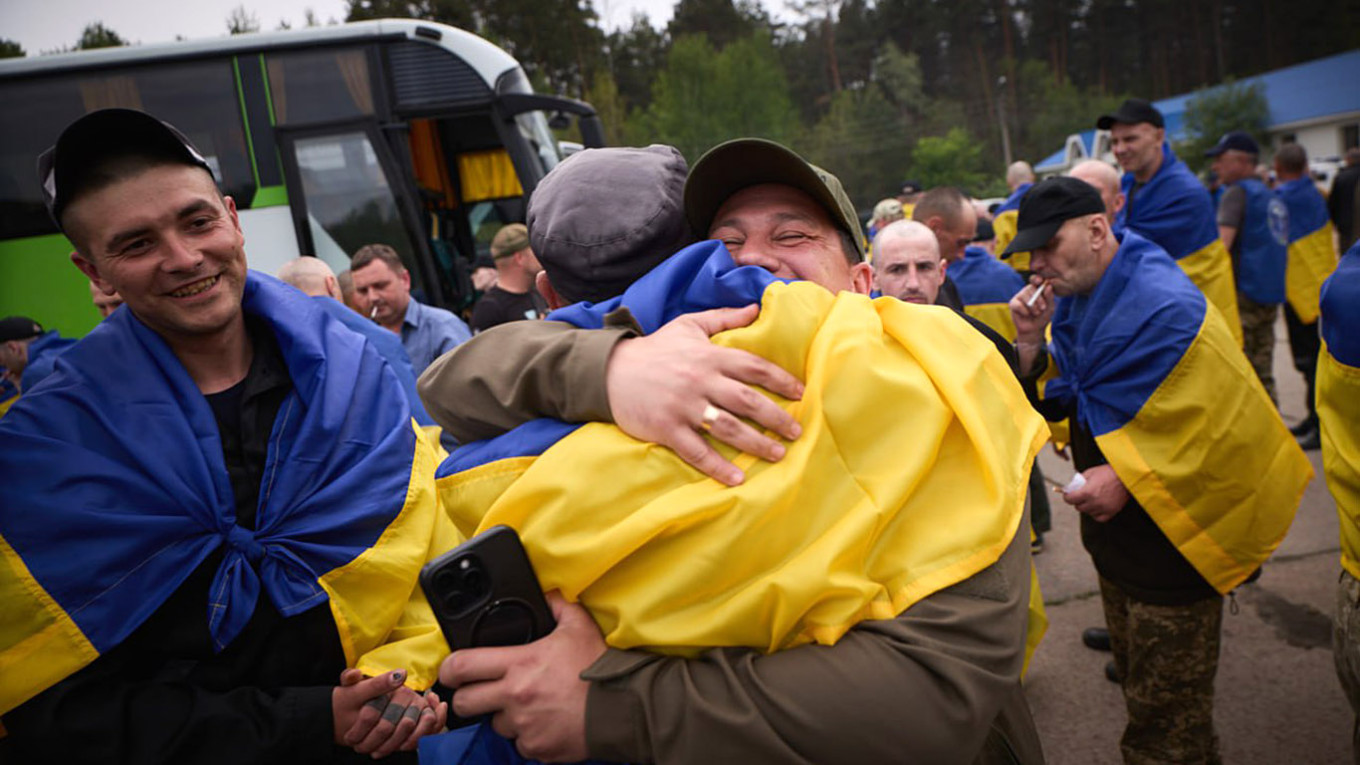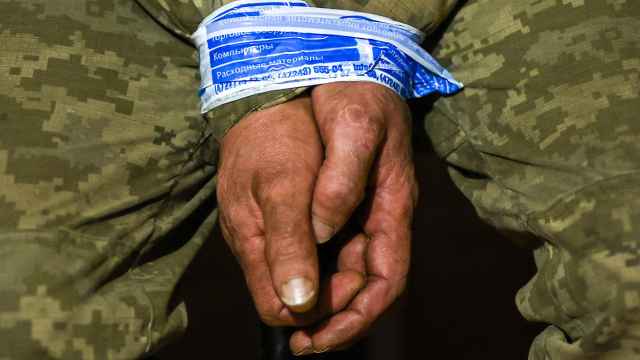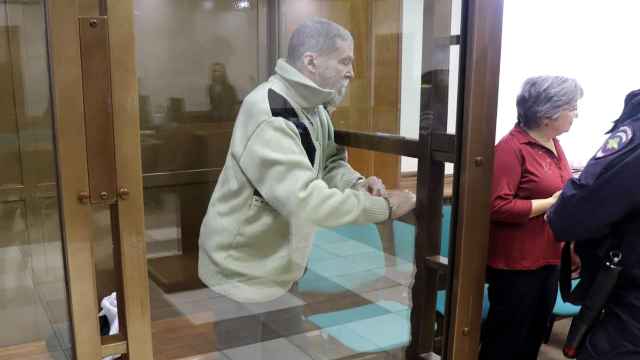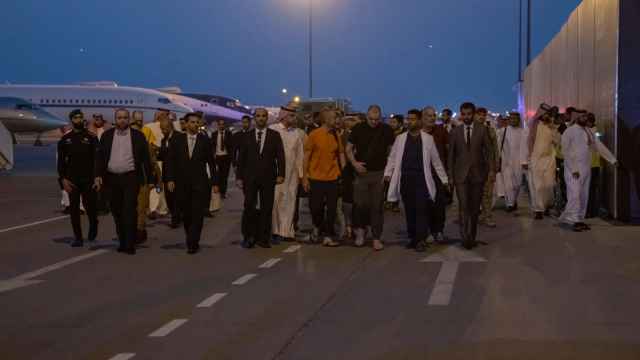At the end of April 2025, Russia returned the body of journalist Viktoriia Roshchyna — who reported from the Ukrainian regions occupied by Russia — to Ukraine. Roshchyna died in Russian custody. Her body showed numerous signs of torture and some of her internal organs had been removed.
Russia holds more than 8,000 Ukrainians in captivity, according to an estimate cited by the BBC. Another 60,000 people are considered missing. This includes both Ukrainian soldiers and civilians: journalists, community activists, pro-Ukrainian teachers and ordinary residents of towns and villages occupied by Russia. Some of them may be held in Russian prisons.
Ninety percent of Ukrainians released from Russian captivity on Jan. 3, 2025, report being tortured. At the same time, Russia does not allow representatives of the International Committee of the Red Cross to visit POWs.
The Ukrainian side is working constantly for all Ukrainian prisoners of war and civilian hostages to be released. First of all, Kyiv insists on the return of Ukrainians who are heavily wounded, seriously ill, women and those who have been in captivity for a long time. Any negotiations on exchanges emphasize the priority of these categories.
At the same time, Ukraine is not interested in detaining Russian prisoners in the long term: Kyiv wants to exchange them as soon as possible for Ukrainians who are currently in captivity.
Ukraine is ready to carry out POW exchanges every two weeks, says Oleh Slobodianyk from the Coordination Headquarters for the Treatment of Prisoners of War. Russia is deliberately delaying the exchange process to spread disinformation and put psychological pressure on Ukrainians.
The Kremlin is not interested in an all-for-all exchange because its strategy is to keep the families of Ukrainian captives in a state of constant terror and uncertainty. For example, in 2024, the Russians distributed on social media fake lists of POWs that Ukraine allegedly did not want to take back. The purpose of this disinformation is to turn Ukrainians against their own government and undermine unity within the country.
Russia has accused the Ukrainian military of taking Russian civilians as POWs. But there is no independent verification of Moscow’s claims. The Red Cross, representatives of the United Nations, global media and international human rights organisations constantly monitor the conditions in which Russian POWs in Ukraine are held. Their stay in captivity is regulated by relevant international conventions.
This, unfortunately, does not protect the Ukrainians currently held by Russia. There is plenty of documented evidence that they are being held in inhumane conditions, living under a constant threat to their health and lives. There are documented cases of abuse and torture committed against Ukrainian POWs.
By the end of 2024, 184 Ukrainians, including 15 civilians, had died in Russian captivity. Russian forensic experts list chronic illness, tuberculosis and heart failure as the causes of death. Meanwhile, released Ukrainians report the use of electric shocks, beatings, torture and starvation.
This is another reason why Russia is delaying the exchanges: to hide the war crimes Ukrainian POWs are subjected to.
As of May 6, 2025, the Ukrainian Coordination Headquarters for the Treatment of Prisoners of War has organized 64 exchanges, which have brought 4,757 Ukrainian citizens home. Kyiv is ready to return Russian soldiers home in exchange for Ukrainian POWs. However, it seems that the Russian side does not care about its citizens. There are many Russians in Ukraine who have been held captive for more than two years.
All exchanges take place under the close supervision of international organizations. Reputable mediators, including representatives of the United Arab Emirates and the Vatican, are also involved in the negotiation process.
In addition, Ukraine, in accordance with the provisions of the Third Geneva Convention, has established Mixed Medical Commissions, which can open the process of mutual repatriation of seriously ill and severely wounded prisoners. Mixed medical commissions consist of two doctors from neutral countries and a third doctor from the country holding the POW. Their task is to assess the condition of a prisoner of war and, if necessary, recommend that they be sent for treatment in a neutral country. In yet another violation of international law, Moscow has not started to establish a commission to monitor their prisons.
On May 25, an exchange of 1,000 Russian POWs for 1,000 Ukrainians concluded. This was the largest exchange of prisoners since the war began. But it exposed that Kyiv has no control over which prisoners Russia returns, as none of the prisoners who defended the Azovstal plant during the siege of Mariupol were among them.
Ukraine's ultimate goal is to bring its citizens home. Kyiv has shown its readiness to return all Russian prisoners of war. But does Russia really want this?
A Message from The Moscow Times:
Dear readers,
We are facing unprecedented challenges. Russia's Prosecutor General's Office has designated The Moscow Times as an "undesirable" organization, criminalizing our work and putting our staff at risk of prosecution. This follows our earlier unjust labeling as a "foreign agent."
These actions are direct attempts to silence independent journalism in Russia. The authorities claim our work "discredits the decisions of the Russian leadership." We see things differently: we strive to provide accurate, unbiased reporting on Russia.
We, the journalists of The Moscow Times, refuse to be silenced. But to continue our work, we need your help.
Your support, no matter how small, makes a world of difference. If you can, please support us monthly starting from just $2. It's quick to set up, and every contribution makes a significant impact.
By supporting The Moscow Times, you're defending open, independent journalism in the face of repression. Thank you for standing with us.
Remind me later.






